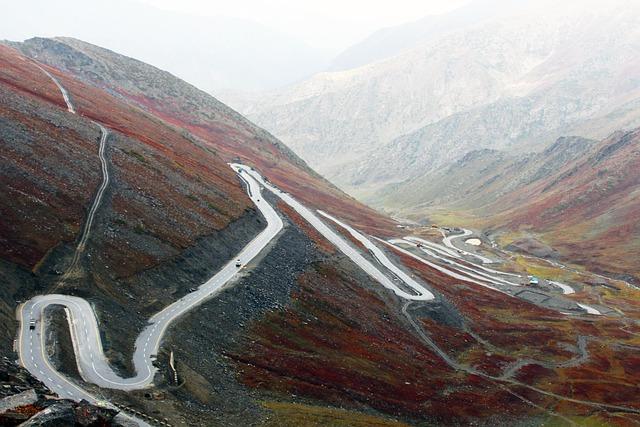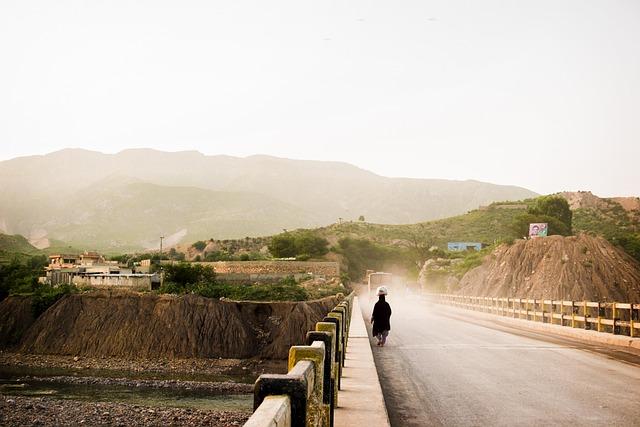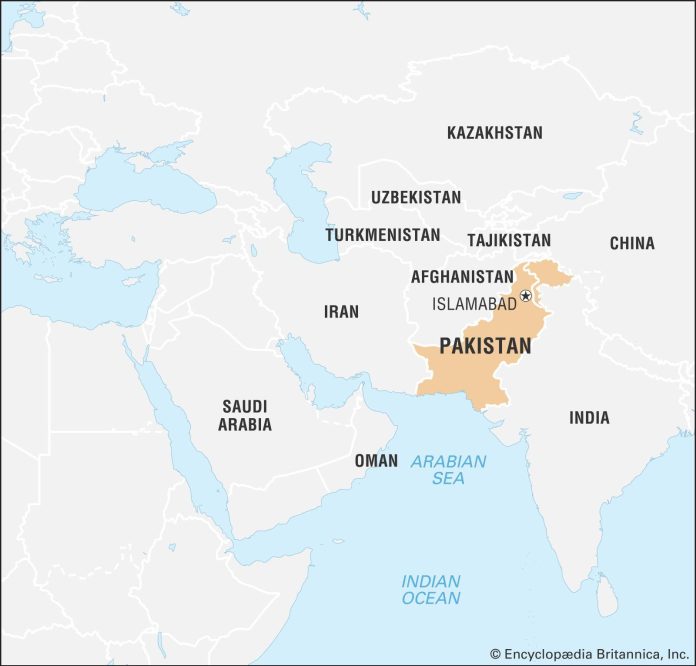In an era where geopolitical landscapes are perpetually shifting, the significance of alliances on the global stage cannot be overstated. At the crossroads of South Asia, Pakistan emerges as a compelling player, intricately woven into the fabric of international diplomacy. With its rich tapestry of historical ties, complex regional dynamics, and a strategic location bordering major powers, Pakistan’s role in global alliances is both multifaceted and pivotal. This article seeks to illuminate the delicate balance Pakistan maintains in its international relations, exploring how the nation navigates its partnerships, confronts challenges, and seeks opportunities on the world stage. From its participation in regional organizations to its bilateral engagements with superpowers, we uncover the nuances of Pakistan’s diplomatic maneuvers and their implications for both the country and the global community at large. Join us on this exploration of Pakistan’s role in the intricate dance of global alliances, where every step carries the potential for cooperation, contention, and change.
Understanding Pakistans Geopolitical Landscape in Global Alliances
Pakistan’s strategic position in South Asia places it at the crossroads of major global powers, shaping its role within international alliances. Historically, the country has aligned itself with various coalitions, influenced by both regional dynamics and superpower interests. *Key aspects of Pakistan’s geopolitical landscape* include:
- Geographical Significance: Proximity to India, China, and Afghanistan makes Pakistan a pivotal player in regional security.
- Economic Partnerships: Initiatives like the China-Pakistan Economic Corridor (CPEC) highlight the importance of economic ties in shaping alliances.
- Military Alliances: Long-standing relationships with countries like the United States and China influence its defense strategies.
- Diplomatic Engagements: Active participation in organizations such as the Organisation of Islamic Cooperation (OIC) and South Asian Association for Regional Cooperation (SAARC).
Moreover, Pakistan’s foreign policy is increasingly focused on balancing its alliances to address emerging global challenges. The nation seeks to navigate complex relationships while fostering economic stability and regional cooperation. A brief overview of current alliances can be distilled in the following table, showcasing Pakistan’s partnerships and areas of collaboration:
| Alliance/Partnership | Main Focus |
|---|---|
| China | Economic Development, Strategic Military Collaboration |
| United States | Counterterrorism, Economic Assistance |
| Saudi Arabia | Energy Cooperation, Defense Support |
| Russia | Regional Security, Defense Technology |

The Dynamics of Pakistan-China Collaboration and Its Global Implications
The collaboration between Pakistan and China illustrates a multifaceted partnership forged through economic, strategic, and geopolitical ties. This alliance, prominently visible in projects like the China-Pakistan Economic Corridor (CPEC), not only strengthens bilateral relations but also reshapes regional dynamics in South Asia. Key factors propelling this collaboration include:
- The mutual interest in combating external pressures and fostering national sovereignty.
- Increased trade and investment opportunities that enhance Pakistan’s infrastructure and economic landscape.
- Shared military and defense strategies that contribute to regional stability.
As this partnership evolves, it significantly impacts global power balances and international relations. The convergence of interests between both nations challenges traditional alliances and introduces new geopolitical narratives. For instance, the increasing presence of China in Pakistan provides a counterbalance to India’s regional ambitions while also inviting scrutiny from Western nations. This phenomenon raises pertinent questions about global governance, particularly in forums such as the United Nations and other international platforms where emerging alliances shift the discourse on security and development. Below is a brief overview of the implications of this collaboration:
| Issue | Implication |
|---|---|
| Economic Growth | Enhanced investment in infrastructure and job creation. |
| Regional Stability | Strengthened defense collaboration mitigates conflict risks. |
| Global Visions | Emergence of a new bloc potentially countering Western narratives. |

Strengthening Ties with the West: Opportunities and Challenges for Pakistan
As Pakistan seeks to forge deeper connections with Western countries, it encounters a landscape filled with both opportunities and challenges. On one hand, this engagement can lead to enhanced economic partnerships, technological advancements, and increased educational exchanges. Pakistan’s strategic location provides it with a unique position to serve as a bridge between the West and the rapidly growing markets of Asia, enabling beneficial trade relations. The potential benefits of collaboration may include:
- Investment Opportunities: Attracting foreign direct investment (FDI) from Western nations.
- Trade Agreements: Establishing free trade agreements to boost exports.
- Access to Technology: Gaining access to advanced technologies in various sectors.
Conversely, the path forward is fraught with complexities that Pakistan must navigate carefully. Historical tensions and geopolitical rivalries can complicate relationships with Western powers, particularly in light of regional conflicts and domestic priorities. To address these challenges, Pakistan must prioritize diplomatic engagement that emphasizes mutual interests while managing its national security concerns. Factors influencing these dynamics include:
| Factor | Implication |
|---|---|
| Geopolitical Rivalries | Strain on diplomatic relations and foreign aid |
| Economic Policies | Impact on trade negotiations and investment climate |
| Security Concerns | Influence on collaboration in counterterrorism and defense |

Fostering Regional Cooperation: Pakistans Role in South Asias Future
In the dynamic landscape of South Asia, Pakistan stands at a pivotal crossroads, where fostering cooperation among neighboring states is essential for sustainable development and regional stability. By engaging in dialogues and forming strategic partnerships, Pakistan can play a crucial role in addressing collective challenges such as poverty, climate change, and security threats. The facilitation of bilateral and multilateral dialogues serves as a foundation for economic collaboration, paving the way for projects that can benefit the entire region. Key initiatives and collaborations include:
- Trade Agreements: Promoting cross-border trade to enhance economic interdependence.
- Cultural Exchanges: Encouraging people-to-people contact to build mutual understanding.
- Infrastructure Development: Collaborating on projects like roads, railways, and energy grids that connect nations.
- Security Cooperation: Joint efforts in combating terrorism and enhancing regional security measures.
Furthermore, Pakistan’s involvement in regional organizations, such as the South Asian Association for Regional Cooperation (SAARC), underscores its commitment to collective growth and stability. Through these platforms, Pakistan can initiate discussions aimed at crisis management, disaster response, and environmental sustainability. Increasing engagement with neighboring countries will not only benefit Pakistan’s economic standing but also strengthen its diplomatic ties, fostering an atmosphere of trust and cooperation. An example of such engagements can be illustrated with the following table of key regional partnerships:
| Partnership | Objective | Year Established |
|---|---|---|
| SAARC | Regional economic and social development | 1985 |
| CPEC | Infrastructure and economic corridor | 2013 |
| SAFMA | Media and communication integration | 2004 |
Future Outlook
As we embark on a journey through the intricate web of international relations, one cannot overlook the strategic significance of Pakistan within this global arena. From historical alliances to contemporary collaborations, Pakistan’s position is not merely one of participation, but rather of active engagement in shaping regional dynamics and fostering international dialogue.
In an ever-evolving geopolitical landscape, Pakistan’s multifaceted relationships hold the potential to influence the course of political and economic developments across the world. As nations grapple with shared challenges and opportunities—be it security, trade, or climate change—understanding Pakistan’s role becomes essential for policymakers, analysts, and scholars alike.
as we continue to navigate the complexities of global alliances, the examination of Pakistan’s contributions and its strategic partnerships underscores the importance of cooperative diplomacy in achieving lasting peace and prosperity. Acknowledging the nuances of these relationships not only amplifies our comprehension of Pakistan’s influence but also illuminates the broader narrative of international relations itself. The road ahead promises to be as dynamic as the alliances it encompasses, and with each turn, we are reminded that the fabric of global diplomacy is woven with threads of collaboration, resilience, and shared vision.



